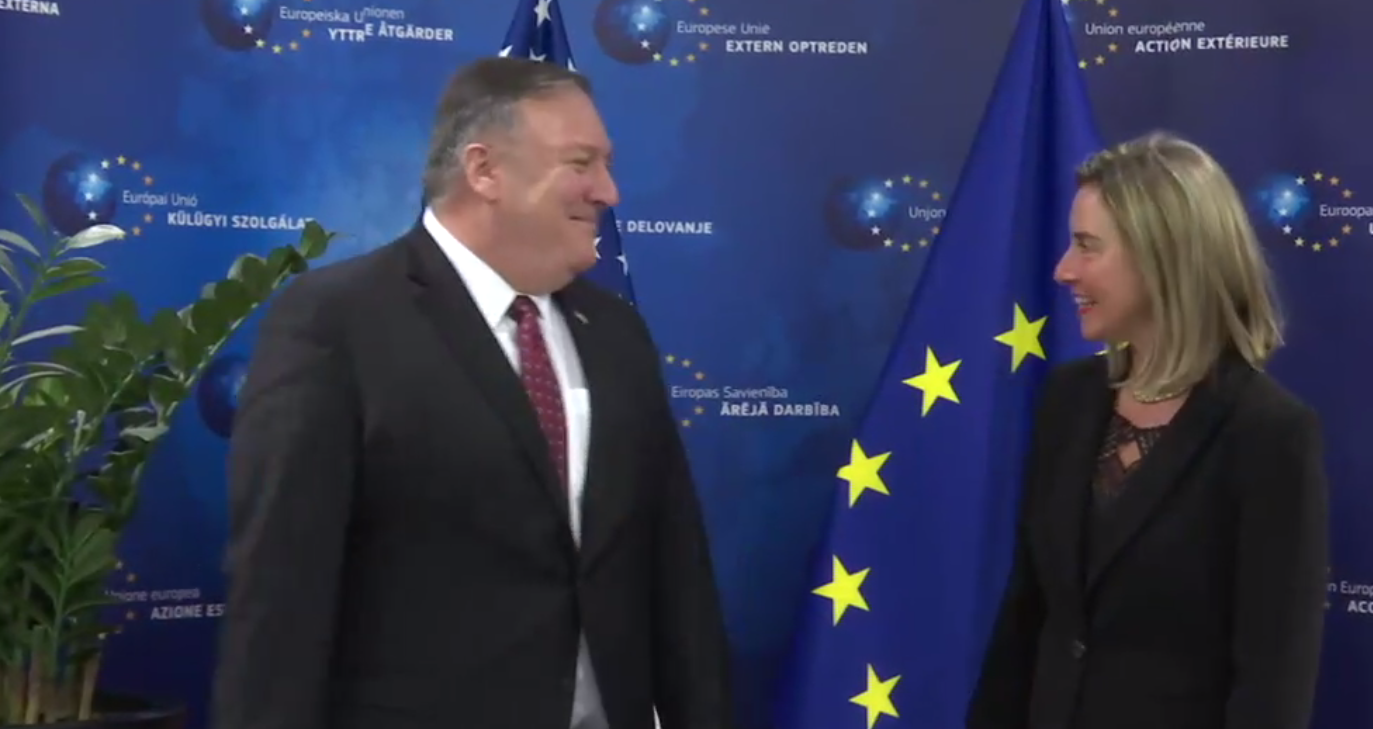CFSP CSDP working groups: who will chair which committee?
(BRUSSELS2) Who will chair the future technical and political committees dealing with foreign affairs within the EU: the blonde or the brunette? Lina or Maria? The one who will (perhaps) be part of the external action service under the responsibility of the High Representative or the one who will remain a diplomat of the Swedish presidency? ![]()

Maria Weimer and Lina Nordbord, two of the Swedish diplomats currently on the bridge who participate in the CFSP groups, the Nicolaidis group in particular, which prepares the decisions of the PSC, during an "informal" meeting in Stockholm (photo credit: Swedish Presidency )
Distribution of presidencies
It performs a fairly simple division between the High Representative (or his delegate) and the rotating presidency of the EU (1). In general, everything concerning European defense will come under the domain of the High Representative for Foreign Policy. It should be remembered that the PSC will also be chaired by a delegate from the High Representative.
A delegate from the High Representative will chair the ESDP working groups — Politico-Military Group (PMG), Civilian Crisis Management Group (CIVCOM), Arms Policy (COARM) — as well as certain horizontal foreign policy committees (PESC): the Nicolaidais Group ( which supports the CFSP, COHOM (human rights), the COSCE (Osce and the Council of Europe), the CONUN (United Nations, protocol and administrative affairs of the CFSP (COADM), the CODUN (arms control and disarmament), CONOP (non-proliferation), COARM (conventional arms export).
He will also chair all the geographical committees Mashreq/Maghreb (COMAG/Mama), Central Asia and Eastern Europe (COEST), Balkans (COWEB), Middle East (COMEM'MOG), Asia Oceania (COASI), Latin America (COLAT), Transatlantic Relations (COTRA), Africa (COATR).
It should be noted that the EU Military Committee will remain in its current form, permanently chaired by a general elected by his peers for a period of 3 years (to be continued Bentegeat's farewell).
It is the High Representative who will himself designate who will represent him in the working group concerned.
The rotating presidency will chair other CFSP working groups: the RELEX group (external relations), COTER (terrorism), COCON (consular affairs), COJUR (public international law) and COMAR (law of the sea). She will also chair the "Trade" and "Development" committees, in particular that on humanitarian aid, or on dual-use goods.
Gradual entry into force. These measures will not come into force immediately. In order to preserve the rise in power of the device and to spare the States which have already done all the preparatory work and are preparing to take the presidency, a transition period is planned for six or twelve months. Thus, for six months, the CFSP and ESDP working groups will continue to be chaired by the rotating presidency (roughly the Spanish presidency), and for twelve months for the geographical committees (roughly the Spanish and Belgian presidencies).
(1) Contrary to some assertions, the fixed presidency of the European Council does not in fact abolish the rotating presidency of the EU which continues to be carried out in turn by the Member States (every six months, more or less, in alphabetical order in the original language)

Comments closed.